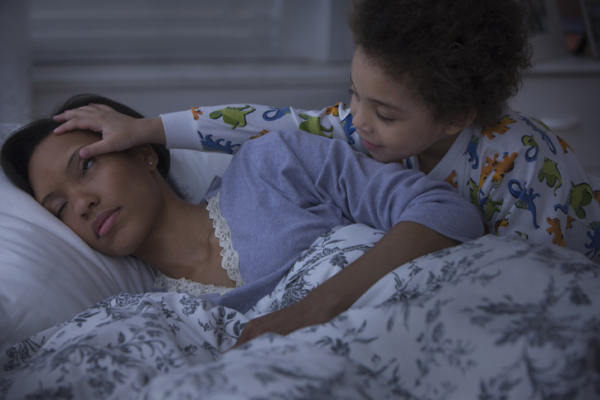It may not happen overnight, but parents can help preschoolers start out and stay in their own beds.

“Sleep is still most perfect… when it is shared with a beloved,” wrote D.H. Lawrence, and most young children would agree. But sometimes those beloved — that is, parents — would rather have some privacy and not be woken by a kicking child all night.
So what can you do?
Sleep-alone campaign step one: Understanding
Before you do anything, be sure you understand why your child wants to sleep with you. It’s most likely simply because they love you and feel most secure snuggled next to you, but before you work to change the habit, be sure that your child is ready for — and can handle — the change. If your child has been more clingy or irritable than usual, or is having difficult behaviors in any way, touch base with your doctor.
Sleep-alone campaign step two: Changing habits
Changing where your child sleeps is changing a habit. When it comes to changing habits, it helps to be practical and — this is really important — consistent. Here are some tips:
- Make an appealing sleep space for your child. Not that anything can really take the place of you, but it is certainly easier to get them to stay in their own room or space if they like it there. Work with them to set up and decorate in a way they like.
- As you create the space, keep in mind what keeps your child awake. If it’s light, use room-darkening curtains. If it’s darkness, think night lights and flashlights. If it’s noise, think about getting a white-noise machine. Set your child up for success. Please: no TVs or devices in the bedroom. They get in the way of healthy sleep.
- Have a consistent bedtime. Try not to let your child stay up late — or sleep late — on weekends. This way your child is more likely to be tired when you want them to be tired.
- Have a consistent, calming, and nurturing bedtime routine. Try to lower the energy level, perhaps with a bath and then some snuggling and reading stories. You want to help them wind down, and also be sure they end the day feeling loved.
- If your child has a hard time going to bed alone, it’s okay to sit in the room and ease yourself out bit by bit after lights are out (you can literally move closer and closer to the door). Try to gradually shorten the time you are in the room.
- If your child gets out of bed, bring them back to their bed. This is the hard part: your child won’t like it, and it can be exhausting for you if they keep creeping out of their bed and into yours. But if you give in and let them stay in your room, they will stay in your room. Every night.
- Use incentives. Make sure your child gets major kudos for any progress at all — and maybe earns something extra for staying in their own bed all night. Try to steer away from things, if possible, and think more about quality time (an extra story, a fun outing).
If nothing is working, or your child is really upset, talk to your doctor. There may be more going on, and the two of you can work together to figure things out and help your child. Both of you deserve a restful night’s sleep.
Follow me on Twitter @drClaire
About the Author

Claire McCarthy, MD, Senior Faculty Editor, Harvard Health Publishing
Claire McCarthy, MD, is a primary care pediatrician at Boston Children’s Hospital, and an assistant professor of pediatrics at Harvard Medical School. In addition to being a senior faculty editor for Harvard Health Publishing, Dr. McCarthy … See Full Bio View all posts by Claire McCarthy, MD
